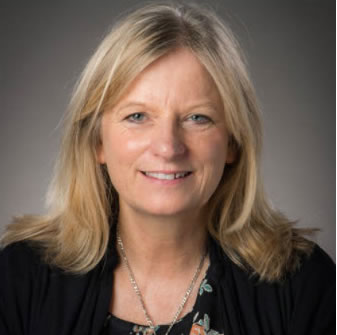The importance of the long view for higher education researchers
 Prof. Andrea Abbas, University of Bath, UK
Prof. Andrea Abbas, University of Bath, UK
The Impact of COVID on Research into Academic Careers and Internationally Collaborative Research was the subject of the keynote presentation from Andrea Abbas, Professor of the Sociology of Higher Education in the Department of Education at the University of Bath, and the Co-Director of the Centre for Research in Education in China and East Asia.
Given that existing inequalities in higher education have only been exacerbated during the pandemic, Prof Abbas said it was important to ensure the freedom for effective higher education research, now and in a post-COVID future.
She said the subjects of, and approach to, research shouldn’t be determined only by traditional perspectives, and questioned whether higher education should simply respond to the labour market and the ‘fourth revolution’. "Why are we investigating people in relation to the economy, rather than investigating the economy, and what it can do for us, in relation to people," she wondered.
She stressed that she wasn’t talking about revolution but a process of change. In order to tackle global inequalities and the climate crisis, alongside the post-COVID economic crisis, critical research needed to transcend that which is embedded in the current social order.
Prof Abbas went on to argue for critical approaches to higher education that foreground those historical injustices which have generated inequalities, and which preceded COVID. She illustrated the value of such approaches through examples from two studies that have continued through COVID-times: a longitudinal biographical study of 14 early career academics that extended over 11 years; and, a research collaboration between the UK and China to develop context-appropriate inclusive educational practises in South West China.
The latter project involved a survey of over 6,000 teachers and stakeholders. Collaborations such as this have often tended to be dominated by European partners, but in this case, after an interrogation of the methods used, via interviews with the research partners, the approach to the project was changed. Through visits, talks and exchanges of observational methods, the relationships and comparative positionality of researchers, participants and the objects of study, were modified.
“I think this is a good example of a de-colonising, or social justice, approach,” Prof Abbas said. The goal was trying to avoid foisting inappropriate elements - such as a concept of inclusion that doesn’t fit – onto the project. “We’re trying to develop a critical realist framework for collaborative comparative research,” she concluded.
Because of the change in approach, new discoveries, such as the different assessments of what is an inclusive action, were made. “We’d like to create some underpinnings for inclusive research that would allows to build from the context outwards,” Prof Abba said.